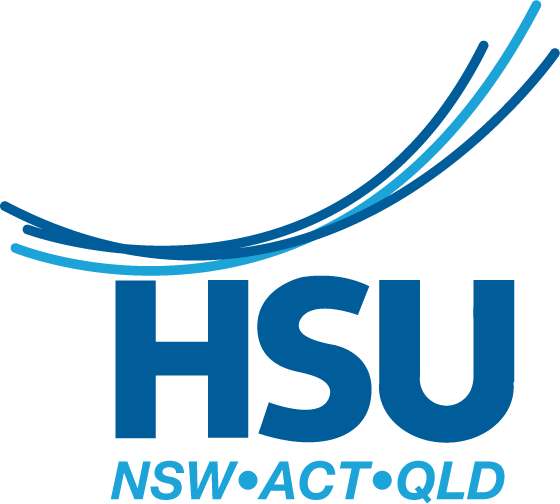HSU Paramedics claim victory in professional pay fight

-
Published April 11, 2024
Paramedicine has changed enormously over recent decades, as these dedicated professionals have continued to acquire cutting-edge skills and make an integral contribution to pre-hospital care. In addition to saving countless lives, paramedics have increasingly been able to perform interventions that alleviate the effects of major medical events, improving patients’ lives and significantly reducing the burden on the hospital system.
But it was only because of a long and hard-fought campaign by dedicated HSU members that the government finally conceded and gave paramedics the recognition they deserve.
“We could not be here to look after the community of NSW without the dedication of our members,” said HSU Secretary Gerard Hayes.
“The reality is, this will go a long way to keep people in NSW … It’s going a long way for younger paramedics to be in the field to treat people to keep them out of hospital.”
Back in 2018, NSW paramedics were first obliged to undertake registration with AHPRA, the Australian Health Practitioners Regulatory Authority. Paramedics had to demonstrate their professionalism and their finely-honed skills – but still, there was no recognition in return.
HSU paramedics fought back, pointing out that despite being the oldest and most populous state, NSW paramedics were the lowest paid and most injured of any in the nation. Our state oversaw a shameful record.
When NSW Labor was elected to government in March 2023, members were hopeful that it would act on its promises to institute professional pay. But instead all they got were weasel words, as the newly installed government tried to walk back its commitments to paramedics.
Meanwhile, skilled paramedics were leaving NSW for other states where they were more recognised and could support their families. What began as a trickle gradually became a flood, as the cost-of-living crisis bit hard.
Members were left with no choice but to campaign with every last strip of their courage and commitment. It wasn’t just the recognition of a professional workforce they were standing up for, but the safety of a community who could be left without a functional ambulance service if the government didn’t act.
With the January 1 deadline for renewal fast approaching, thousands of paramedics pledged to boycott registration. The government would have to explain to the people of NSW why the majority of their ambulance workforce couldn’t work, because it didn’t think they were worth it. After all, why would anyone undertake professional registration if they weren’t given professional pay?
Finally, at the 11th hour, the NSW government blinked. HSU members were presented with a pay offer of up to 29 per cent, depending on their grade. They voted overwhelmingly to accept it.
Paramedic and HSU Junior Vice President Tess Oxley said, “I get to say that I’m proud to be a paramedic again in NSW again today.”
“We have been the lowest paid, the highest injured for a very long time. We can now do what we signed up to do.”
This outcome reflects the years of hard work put in by delegates and members across the state. Every countdown photo, chalk slogan, red t-shirt, rally cry and union meeting led to this pay increase, which will soon bring NSWA paramedics up to parity with their Queensland colleagues.
What's next?
What is TFR? And why is it bad?
Following their recent successful professional pay campaign, HSU paramedic delegates are shifting their focus to address safety concerns within NSW Ambulance – particularly targeting TFR.
TFR, short for Taxpayer-Funded Rosters, refers to the scheduling system implemented by NSW Ambulance which sets the number of paramedics based on the average workload in a specific area, known as PAR.
Issues arise when stations are deemed to be at par, meaning that NSW Ambulance does not allocate additional paramedics even when existing staff are actively short staffed and unable to respond to emergencies in their own allocated areas.
This situation can result in paramedics being required to extend their shifts by an extra two hours beyond their regular work hours while being subject to potential calls outside of their assigned district. This practice has raised concerns about fatigue, safety and the ability of paramedics to effectively respond to emergencies.
By focusing on abolishing TFR and advocating for safer working conditions, HSU paramedic delegates are championing the wellbeing of paramedics and ensuring that resources are allocated efficiently to provide the best possible service to the community.
